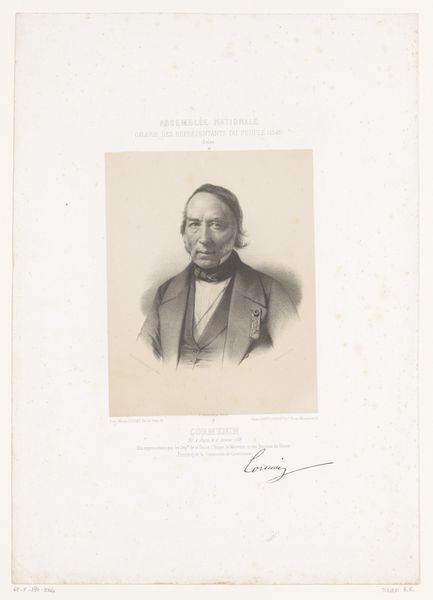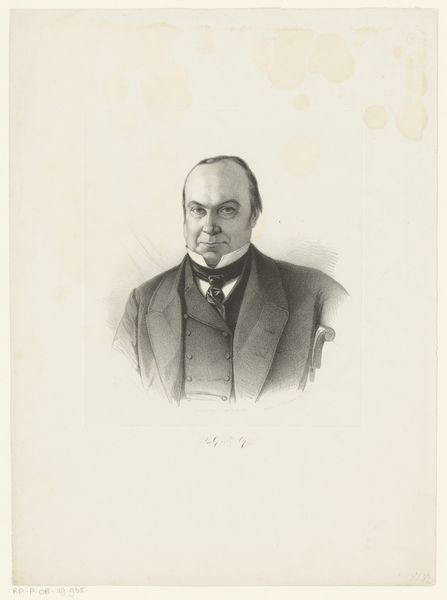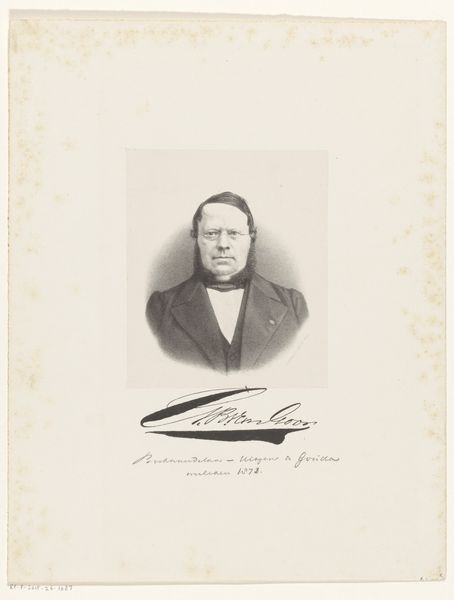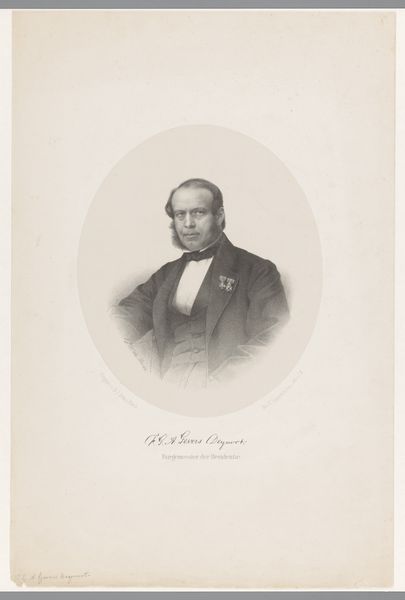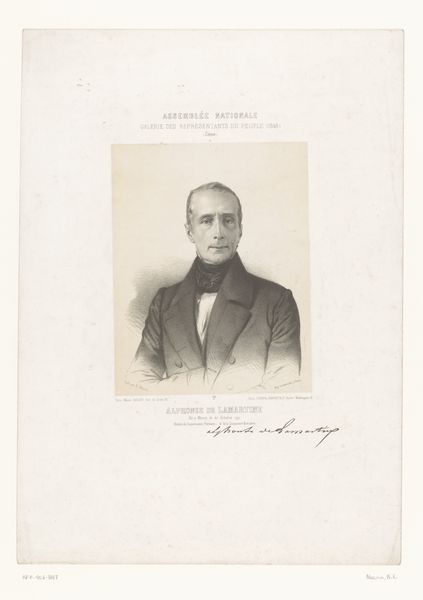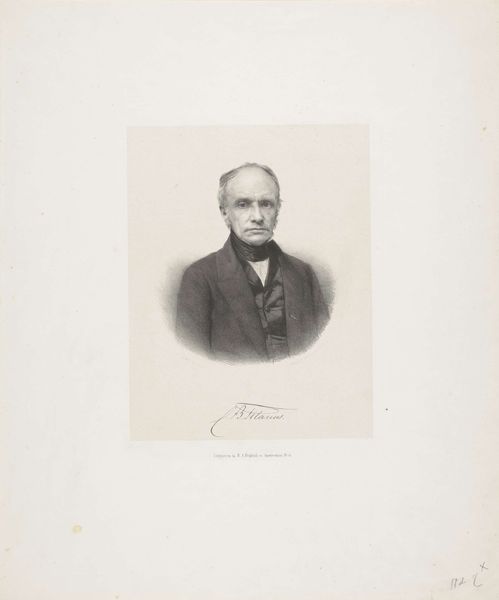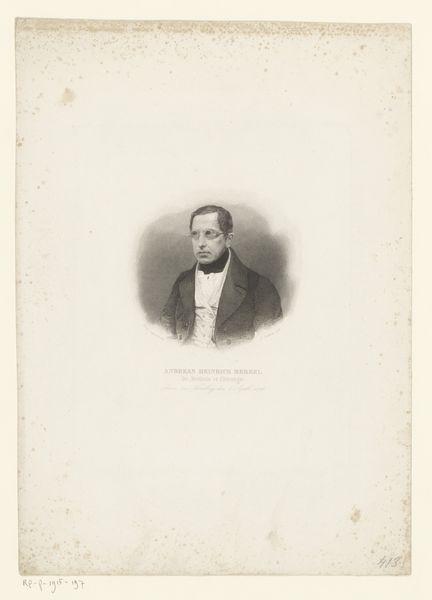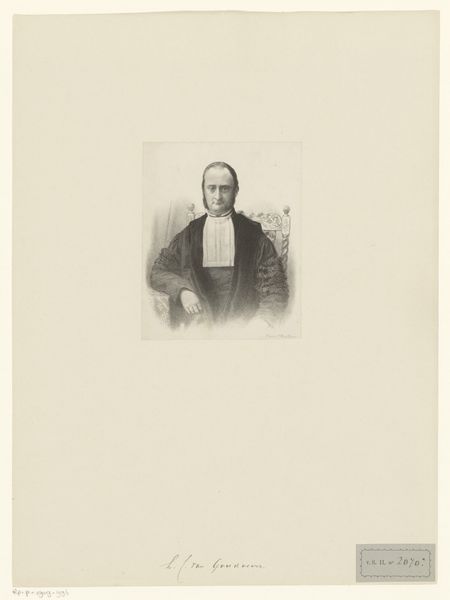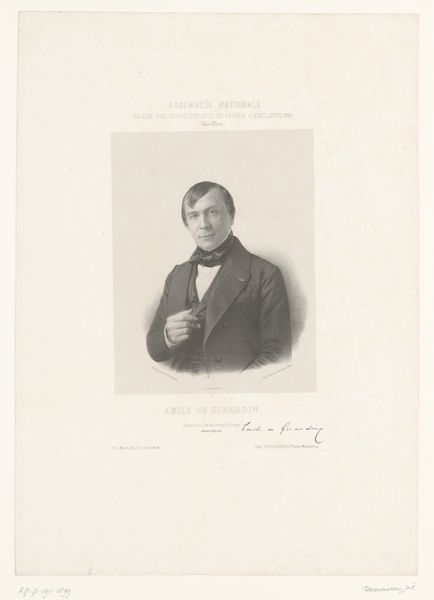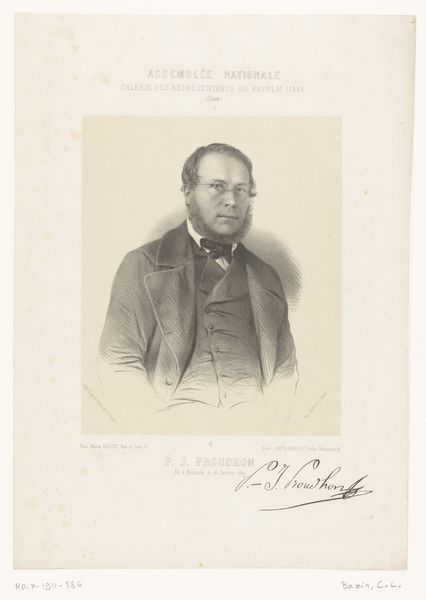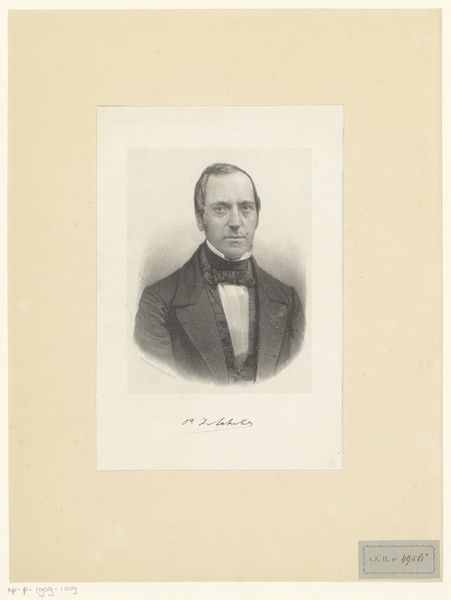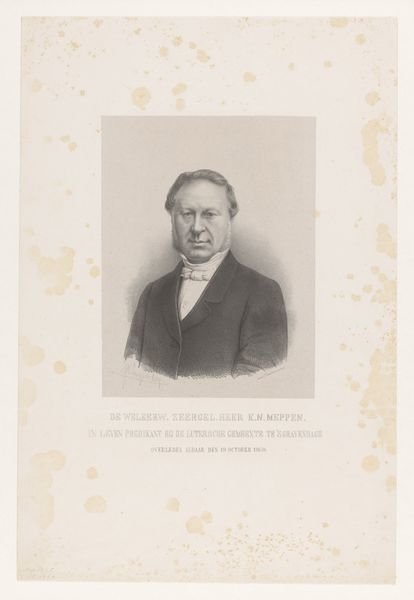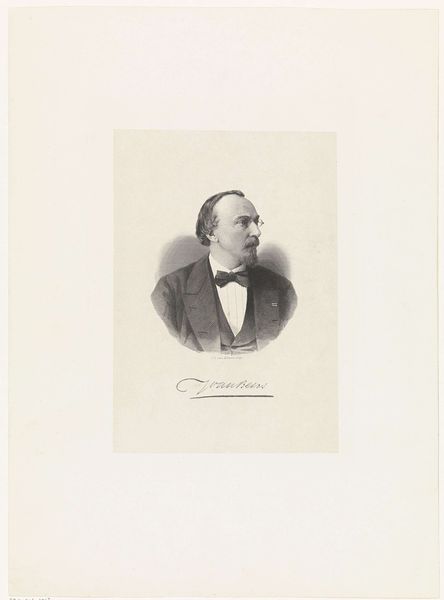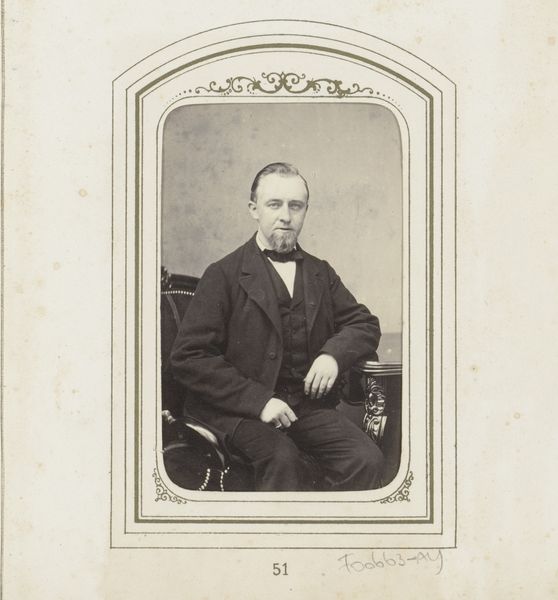
drawing, lithograph, paper
#
portrait
#
pencil drawn
#
drawing
#
16_19th-century
#
lithograph
#
light coloured
#
old engraving style
#
white palette
#
paper
#
realism
Dimensions: height 394 mm, width 287 mm
Copyright: Rijks Museum: Open Domain
This portrait of Louis Wolowski was rendered by Jean-Baptiste Adolphe Lafosse in the 19th century, immortalizing a figure of the French National Assembly. The symbols in his attire and the very act of portraiture speak volumes. The dark suit, crisp white shirt, and cravat, all signify a departure from aristocratic excess towards a more bourgeois, intellectual identity. The portrait itself, reminiscent of ancient Roman busts, elevates Wolowski to the status of a respected public figure, embodying civic virtue. Consider how the portrait echoes the Roman tradition of preserving the likenesses of prominent citizens as symbols of societal values. Yet, in this modern depiction, we observe a shift: the stern, unyielding visage of the Roman statesman softens into the face of a scholar, reflecting the 19th-century faith in reason and progress. This is how symbols evolve, adapting to the currents of history and human aspirations, each iteration carrying echoes of the past while charting new cultural territories.
Comments
No comments
Be the first to comment and join the conversation on the ultimate creative platform.
